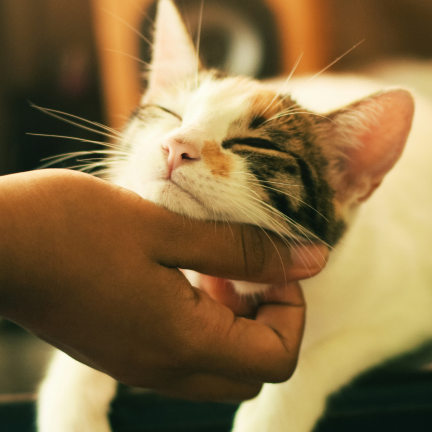Blog:What Vaccinations Does My Pet Need, and How Often?

Preventive care is the foundation of your pet's health and well-being. By taking proactive steps to maintain your pet's health, you can avoid costly medical issues down the line and ensure your furry friend enjoys a long, happy life. At the heart of preventive care lies the critical importance of vaccinations.
The Importance of Vaccinations
Vaccinations work by stimulating your pet's immune system to produce antibodies that can recognize and fight off specific pathogens. When your pet is exposed to a disease, these antibodies are ready to spring into action, preventing the infection from taking hold or minimizing the severity of the illness.
Without proper vaccination, your pet is left vulnerable to a range of contagious diseases, some of which can be easily transmitted between animals and even to humans. Maintaining your pet's vaccination schedule is a crucial step in keeping them healthy and preventing the spread of disease within your community.
Core Vaccinations for Pets
Core vaccinations are considered essential for all pets, as they protect against the most common and potentially life-threatening diseases. These include:
Rabies Vaccine: This vaccine is mandatory in most areas and protects against the fatal rabies virus, which can be transmitted to humans through bites or scratches.
Distemper Vaccine: Distemper is a highly contagious and often fatal viral disease that affects the respiratory, gastrointestinal, and nervous systems of pets.
Parvovirus Vaccine: Parvovirus is a highly contagious and potentially deadly viral infection that primarily affects the gastrointestinal tract.
Feline Panleukopenia Vaccine (for cats): Also known as feline distemper, this is a highly contagious and often fatal viral disease that affects the digestive and immune systems of cats.
Feline Viral Rhinotracheitis, Calicivirus, and Panleukopenia Vaccine (for cats): This "combo" vaccine protects against three common and serious viral infections in cats.
Canine Adenovirus Vaccine (for dogs): This vaccine protects against a viral infection that can cause liver and respiratory problems in dogs.
Non-Core Vaccinations for Pets
In addition to the core vaccinations, your veterinarian may recommend additional "non-core" vaccinations based on your pet's lifestyle, risk factors, and exposure to certain diseases. These include:
Bordetella Vaccine: This vaccine protects against a highly contagious bacterial infection that causes kennel cough in dogs.
Leptospirosis Vaccine: Leptospirosis is a bacterial disease that can be transmitted to pets and humans through contact with contaminated water or soil.
Canine Influenza Vaccine: Canine influenza is a relatively new and highly contagious respiratory disease that can affect dogs.
Feline Leukemia Virus Vaccine (for cats): This vaccine protects against a viral infection that can weaken a cat's immune system and lead to the development of various types of cancer.
Feline Immunodeficiency Virus Vaccine (for cats): This vaccine helps protect against a viral infection that can compromise a cat's immune system, similar to HIV in humans.
How Often Should Pets Be Vaccinated?
The frequency of vaccinations for your pet will depend on several factors, including their age, overall health, and the specific vaccines being administered.
Puppies and kittens require a series of vaccinations, typically starting at 6-8 weeks of age and continuing at 3-4 week intervals until they reach 16 weeks old. This schedule ensures that their immune systems are properly primed and protected during the critical early stages of their development.
Once your pet reaches adulthood, they will typically require booster shots for their core vaccinations on an annual or triennial (every 3 years) basis, depending on the specific vaccine. Non-core vaccinations may be administered on a more frequent schedule, as determined by your veterinarian based on your pet's risk factors and lifestyle.
It's important to work closely with your veterinarian to ensure that your pet's vaccination schedule is tailored to their individual needs and that they receive the appropriate boosters at the right intervals.
Prioritizing Your Pet's Health Through Vaccinations
Maintaining your pet's vaccination schedule is a crucial aspect of preventive care and a vital investment in their long-term health and well-being. By keeping your pet up-to-date on their recommended vaccinations, you are not only protecting them from potentially devastating diseases but also contributing to the overall health and safety of your local pet community.
At the Animal Hospital of Palo Alto, we are here to guide you through the importance of vaccinations and help you create a customized vaccination schedule that meets your pet's unique needs. Visit our facility in Palo Alto, California, or call (650) 493-2738 to schedule an appointment and take the first step towards ensuring your pet's optimal health and well-being.




